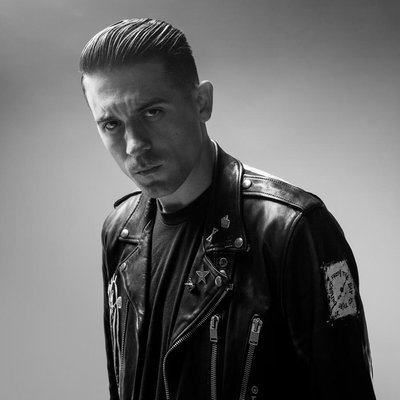
G-Eazy is such a big deal that iconic rapper Lil Wayne remixed a song from his new album last week and NBA superstar Kobe Bryant greeted him at a recent Lakers game.
On Billboard’s website, Nielsen Music charts hip-hop and R&B songs using a metric that calculates radio airplay, streaming and music sales. Each week since Feb. 20, G-Eazy’s “Me, Myself & I” ranked higher than any other rap song save Drake’s “Summer 16” and Rihanna’s “Work” (which also features Drake).
G-Eazy raps on his new album that he’s the “coldest white rapper in the game since the one with the bleached hair,” a thinly veiled reference to Eminem. Is Slim Shady a fair comparison? G-Eazy tells EW that juxtapositions like that, even when he makes them himself, are still sinking in.
“You imagine what it’s like when the ball finally starts rolling and things start to pick up and everything you dreamed of starts to come to fruition,” says G-Eazy, born Gerald Earl Gillum. “These are the kinds of things you imagine, but they still feel very surreal.”
The Oakland-born rapper, 26, says he’s practicing mindfulness and learning to appreciate what’s happening around him. And there’s a lot to be grateful for: His albums When It’s Dark Out (2015) and These Things Happen (2014) both debuted in the top five on the Billboard charts.
His more recent album opens with a quote from the famous poem “Do not go gentle into that good night” by Welsh poet Dylan Thomas. He says the lines fit the picture he was trying to paint.
On certain tracks, however, the rapper’s correlation to Thomas falls away.
On the song “One of Them,” G-Eazy expresses his obsessive desire for Lamborghinis, Ferraris and Grammys, as well as millions of dollars. His own lyrics peg him as “materialistic,” though he also admits that money, and having lots of it, is a new thing in his life.
Gillum says he was raised by a single mother who worked two jobs. She did what she could to take care of him and his younger brother, he says, though Gillum himself often worked extra jobs to pay for new shoes.
“I didn’t have Jordans; I didn’t have nice clothes when I was a kid,” Gillum says. “When you’re young, these things matter a lot. They make you feel cool. I was always told we couldn’t afford those things.”
These days, things are drastically different. He spends money “without thinking twice.” But sometimes, as illustrated on the album, his fixation on consumerism can be jarring, especially in an age of extreme economic inequality.
G-Eazy raps on the track “Random” about how he will “throw a fuckin’ tantrum” if he doesn’t get a new Phantom Rolls-Royce.
Later, an introspective Gillum speculates on “What If?” about an interesting hypothetical: “What if the game didn’t care I was white? Would I still be selling out shows every night?”
With his neo-greaser look, G-Eazy is aware that his curated image is important to his success.
Does that mean he’s going to write something similar to either of Macklemore’s “White Privilege” songs and speak directly to his own whiteness? He says he’ll avoid starting a conversation if it’s not already underway.
“I can only tell my own story; I can only talk about what I know, so I can only be true to myself,” Gillum says. “When you step outside of that, I think people can tell when you’re not being honest and you’re not being authentic.”
G-Eazy performs with Nef The Pharaoh, Marty Grimes and Daghe 7:30 pm Friday, April 8, at Matthew Knight Arena; $25-$39.50.